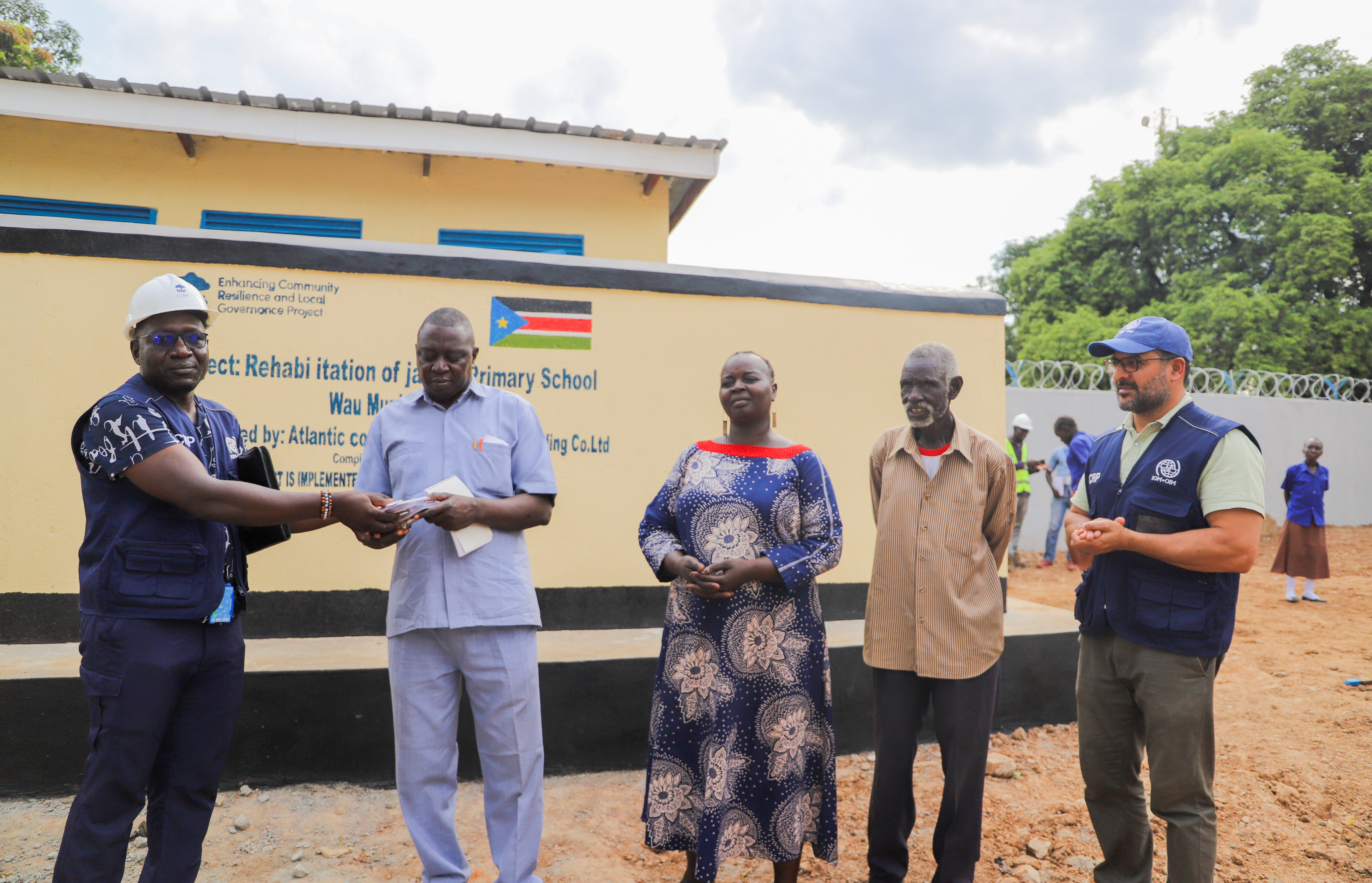-
Who We Are
WHO WE AREThe International Organization for Migration (IOM) is part of the United Nations System as the leading inter-governmental organization promoting since 1951 humane and orderly migration for the benefit of all, with 175 member states and a presence in over 100 countries. IOM has had a presence in South Sudan since 2011.
About
About
IOM Global
IOM Global
-
Our Work
Our WorkAs the leading inter-governmental organization promoting humane and orderly migration, IOM plays a key role to support the achievement of the 2030 Agenda through different areas of intervention that connect both humanitarian assistance and sustainable development. IOM South Sudan provides a comprehensive response to the humanitarian needs of migrants, internally displaced persons, returnees and host communities.
Cross-cutting (Global)
Cross-cutting (Global)
- Data and Resources
- Take Action
- 2030 Agenda
IOM hands over rehabilitated primary school in Wau to government and community
Wau – The International Organization for Migration (IOM) has on Monday handed over a primary
Rehabilitation works on the school started early this year after the Wau North Payam Development Committee (PDC), comprised of representatives from each Boma Development Committee (BDC) in the payam, identified rehabilitation of Janain Primary School as one of the community’s priority development objectives. Janain Primary School is located in Hai Fahal, a highly multicultural community which is home to persons from different social, cultural, and ethnic groups, many of whom fled their former communities during the civil conflict.
Under the supervision of ECRP’s technical teams, contractors constructed a wall around the school, one block of two classrooms, and a gender segregated latrine that also accommodates the needs of people with disabilities.
More than 350 students, including host community members, returnees, and IDPs will benefit from the this newly rehabilitated infrastructure.
Speaking at the handover event, Esterina John, the head mistress at the school, expressed her happiness about the project.
“I am excited that my school has seen this rehabilitation. The classes are looking beautiful. My pupils will be protected inside this wall from
South Sudan is home to more than 2.8 million children, over 70% of whom are out of school. Furthermore, most of those who are in school do not have access to the school infrastructure that is essential for effective teaching and learning to take place. ECRP, through the leadership and commitment of the local government and community, strives to address this issue in Hai Fahal and other ECRP-selected communities where PDCs have chosen school infrastructure projects through the rehabilitation of schools. ECRP seeks to maximize the impact of school construction and rehabilitation by also ensuring the sustainability of the schools through a strong focus on government and community led operation and maintenance, as is critical for all types of infrastructure built under ECRP.

“We used to study under
So far, ECRP has handed over nine infrastructure subprojects in Wau and Raja Counties, including health facilities, schools, and water yards. In the coming weeks, IOM will be handing over more infrastructure subprojects in Wau and other parts of the country where the project is operating.
ECRP, funded by the World Bank and implemented by UNOPS and IOM on behalf of the Government of South Sudan, seeks to strengthen the capacity of local governance and community level institutions, and build infrastructure to address gaps in basic services in 20 counties across ten states in South Sudan.
ECR works to instrumentalize South Sudan’s Local Government Act by supporting the formation and functioning of gender and minority inclusive Boma Development Committees and Payam Development Committees as sustainable drivers of community development. As such, ECRP promotes social cohesion by strengthening state-citizen relationships through improved service delivery and collaboration on development projects. The project has reached over 630,000 people across diverse locations, benefitting these communities directly with project investments and support.
For more information, please contact Nabie Loyce at IOM South Sudan; email: nloyce@iom.int, Tel: +211912380115
